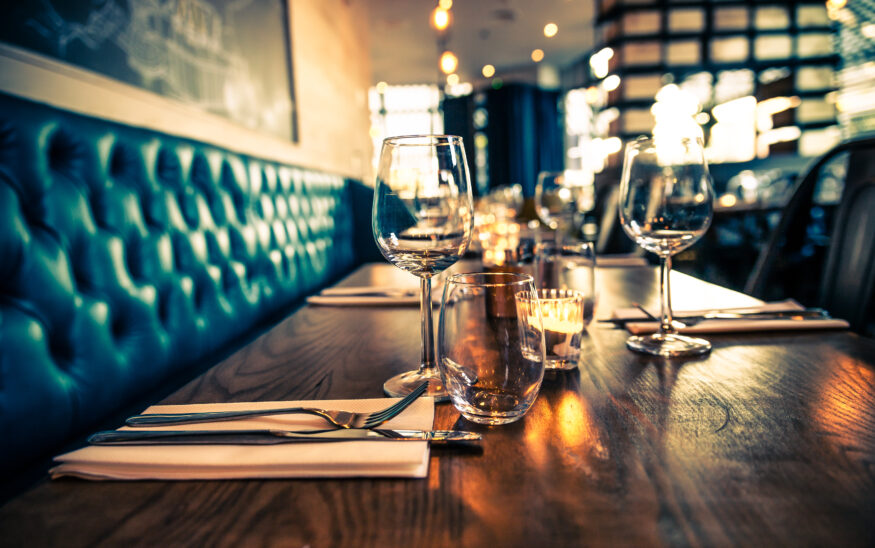Adaptability key for restaurants amid COVID-19 obstacles
With crisis after crisis, innovation was certainly rewarded for those able to adapt to the circumstances
Ali Longwell //November 12, 2020//


Adaptability key for restaurants amid COVID-19 obstacles
With crisis after crisis, innovation was certainly rewarded for those able to adapt to the circumstances
Ali Longwell //November 12, 2020//
This year has taught us all a little something about survival. But perhaps no one has had to learn this more than those in the restaurant industry, which has experienced obstacle after obstacle since the coronavirus pandemic hit U.S. soil in early-March.
With razor-thin margins in the best of times —alongside the tedious balance of rent or lease payments, payroll, food costs and more—adaptability and innovation have long been core tenants of a successful restaurateur and dining concept.
“COVID-19 has been the most challenging crisis the restaurant industry has faced in living memory,” says Sonia Riggs, president and CEO of the Colorado Restaurant Association. “The shutdown was like a free fall — we believe the Colorado restaurant industry lost nearly $1 billion in revenue in April alone.”
Not only did the initial shutdown pose its obvious challenges, but the reopening has been a maze of red tape and ongoing capacity restrictions. And, according to Riggs, the only substantial relief the industry received — the Small Business Administration’s PPP loans—came at a time when restaurants were closed for business and had nothing for staff to do; which is particularly bad timing when you consider that loan forgiveness hinges on the money being used for payroll.
With crisis after crisis, innovation was certainly rewarded for those able to adapt to the circumstances.
Take Zeppelin Development. The company, which owns both the The Source market halls, Zeppelin Station and many other multi-use properties in Denver, had a few things working in its favor during the pandemic: its pre-existing focus on indoor-outdoor space; the fact that food hall concepts present a lower overhead and risk for restaurant vendors; and more. This, coupled with its ability to continue to bring new experiences during the pandemic, has allowed the company to maintain optimism about the future.
According to Justin Croft, VP of development at Zeppelin Development, this year has been somewhat affirming for the forward-thinking Zeppelin. As one of the first to bring food halls to Colorado, the company has seen the advantages of the concept play out in a troubling time.
“Margins in that industry have always been so thin and COVID has made that so much more challenging,” he says. “In some ways, we saw the writing on the wall [in 2013 when The Source first opened in RiNo] about having multiple operators attracting and sharing some of the operating costs and customer base; that’s where the market was already headed, and in some ways COVID accelerated that.”
And certainly the company’s access to outdoor dining helped it through the summer months, something Riggs noted as a clear advantage. “Restaurants able to really take advantage of a patio expansion for more seating over the summer have fared better,” she says. “Likewise, those that had significant takeout and delivery operations before COVID-19 certainly weathered the early part of the crisis better.” Those who have been able to grow takeout and delivery operations also found success.
Still, with winter approaching, restaurants that found success in the summer will face a new set of challenges — challenges that those without expanded patio space have been facing all year.
“We are working on creative solutions to making outdoor space usable through the winter, including partnering with the state for a design workshop with the goal of having design professionals create affordable, implementable solutions that keep diners safe and warm on patios throughout the winter,” Riggs says.
These adaptations will require significant investment. Which is why The Restaurant Association is working to secure funding, grants and financial assistance.
For Zeppelin, the winter will be about continuing to accommodate guests and going back to the basics of hospitality. “People want to be comfortable, they want to have delicious food, they want to have nice things to drink and celebrate nice occasions; and to the degree that they can be in a big space and feel safe, that’s what we’re here to provide,” Croft says.
As for the long-term future of restaurants in Colorado? Only time will tell.
“It’s too hard to say yet what the lasting impact of this will be on restaurants. We’re still in survival mode,” Riggs says. “We do anticipate a long recovery and will continue to advocate for relief in all forms at all levels of government.”

























